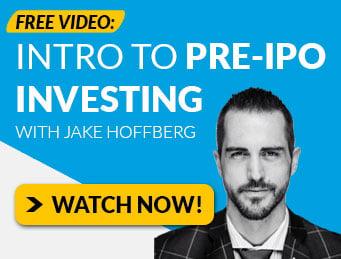If you’ve been investing for any length of time, chances are, you know someone on the “Inside.”
You know who I’m talking about. It’s the person who always seems to have a story about the latest deal they just invested in…
The exclusive event they recently attended that you’d never get invited to…
And they always seem to have the “inside scoop” on the next big thing.
Everything they touch seems to turn to gold and money never seems to be a problem for them.
In other words, they are an “Insider.”
But make no mistake. Being an “Insider” isn’t some silly title you put in your social media profile. It’s a way of life.
If “Outsiders” make emotional decisions based on limited information, hearsay, and the fear of missing out…
“Insiders” seek to make educated decisions based on publicly available information, lived experiences, and their own personal financial goals.
To be clear, being an “Insider” has nothing to do with any sort of illegal “insider trading” activity…
It’s about making the transition from an “unsophisticated” investor to a knowledgeable one.
As Warren Buffet is famous for saying, “Risk comes from not knowing what you are doing.”
And if you’re interested in diversifying your portfolio into the private markets, the first step to “knowing what you’re doing” is to learn the rules of the game you’re playing.
Let’s dive in.
– Jake Hoffberg
The Great Game of Private Capital
According to Jack Stack, author of The Great Game of Business, the ultimate advantage” in business is something he calls Open Book Management (OBM).
Instead of having a traditional “top-down, command-and-control” management team, OBM aims to help employees perform their jobs effectively by teaching them how the company is doing as a whole.
In other words, if you teach employees how their job fits into the bigger business picture, they can actively contribute to the company’s growth instead of merely collecting a paycheck.
-
Know and teach the rules: Every employee should be given the measures of business success and taught to understand them
-
Follow the Action & Keep Score: Every employee should be expected and enabled to use their knowledge to improve performance
-
Provide a Stake in the Outcome: Every employee should have a direct stake in the company’s success and in the risk of failure
Stack’s book not only influenced the way I approach running a business, but it also influenced the way I think about investing.
While I certainly appreciate that for the vast majority of our readers, their life savings isn’t a “game” and there are real consequences for getting things wrong…
It’s commonly accepted knowledge that investing emotionally leads to problems.
That’s why professional investors use a defined process with clear rules and desired outcomes when managing their portfolios.
They’ve turned their investment strategy into a game they understand how to play.
With this in mind, I present to you The Great Game of Private Capital, an investment framework adapted from the 9 principles of Stack’s open-book management to help retail investors navigate the complex world of private market investing and become a Private Capital Insider.
Here they are:
-
Teach Investors about Private Capital: Educate retail investors about the language of private capital, the differences between public and private markets, and the potential benefits and risks of investing in private companies.
-
Adopt the Right Investment Philosophies: Encourage retail investors to think long-term, focus on value creation, and develop an understanding of the unique dynamics of private markets.
-
Get Investors into Game-Playing Mode: Foster an environment where retail investors can collaborate, share insights, and learn from each other’s experiences in private market investing.
-
Show Investors the Big Picture: Help retail investors understand the broader trends and market forces shaping the private capital landscape, and how individual investments fit into this context.
-
Set Investment Standards: Establish clear criteria for evaluating private market deals, such as due diligence, risk assessment, and potential for value creation.
-
Align Incentives with Investment Goals: Design investment structures that align the interests of retail investors, entrepreneurs, and private capital providers.
-
Develop a Private Capital Game Plan: Encourage retail investors to create an investment strategy tailored to their goals, risk tolerance, and areas of expertise within private markets.
-
Establish a Rhythm and Cycles: Encourage regular portfolio reviews, knowledge sharing, and continuous learning among retail investors involved in private capital.
-
Create a Community of Private Capital Investors: Foster a sense of ownership and shared responsibility among retail investors in private markets, promoting collaboration and the exchange of ideas and experiences.
Think of This Newsletter as Your “Passport” Into The World of Private Capital…
And think of me (and the rest of the Equifund Staff) as your guide on your journey to becoming a Private Capital Insider.
While I can’t provide any individualized investment advice, recommendations, or “stock picks”…
What I can do is show you how we think about playing the game here at Equifund.
We hope this letter will be a way for us to build a relationship with you and help you build your confidence in private market opportunities…
And of course, we hope that teaching you how to “see” the way we do at Equifund, will build your confidence in doing business with us.
If you’d like to check out our library of existing content, you can do so by going here.
Interested in opening an investment account on Equifund? If so, you’ll find all of our walkthroughs, guides, and tutorials for getting your accounts set up properly right here.
Want to check out the offerings we have listed on Equifund? Go here to see our current opportunities.





